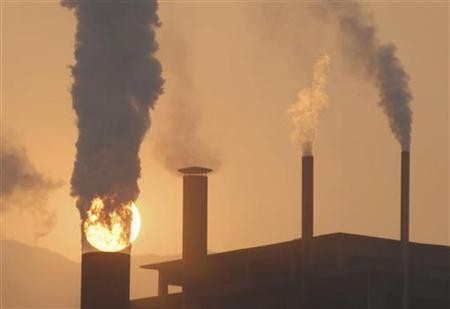
While there might be several naysayers, nonbelievers and doubters, the threat of Global Warming is fast becoming a reality. Now, a new research has given out a warning that the global average temperatures will soar by at least 4 degrees Celsius by 2100 and potentially more than 8 degrees C by 2200, if cardon dioxide emissions continue unchecked.
The research, by University of New South Wales, published in Nature concludes that the threat to global climate by carbon dioxide is more sensitive than it was thought to be in earlier studies. The research claims to have solved the unknowns of climate sensitivity, that is, the role of cloud formation and its impact on global warming.
"Our research has shown climate models indicating a low temperature response to a doubling of carbon dioxide from preindustrial times are not reproducing the correct processes that lead to cloud formation," said lead author from the University of New South Wales' Centre of Excellence for Climate System Science - Professor Steven Sherwood.
In the report, Professor Sherwood states: "When the processes are correct in the climate models the level of climate sensitivity is far higher. Previously, estimates of the sensitivity of global temperature to a doubling of carbon dioxide ranged from 1.5°C to 5°C. This new research takes away the lower end of climate sensitivity estimates, meaning that global average temperatures will increase by 3°C to 5°C with a doubling of carbon dioxide."
The research gains much relevance in the light that oil companies, despite knowing the environmental impact, are exploring the Arctic. An article 'Exxon Mobil CEO: We're Going In, Can't Pull Up, Brace For Impact' reveals the extend to which the oil companies are ready to go.
Exxon's CEO Rex Tillerson was reported to have told this to his stockholders, on May 29, when challenged about global warming: "What good is it to save the planet if humanity suffers? ... We do not see a viable pathway with any known technology today to achieve the 350 [parts per billion atmospheric carbon] outcome that is not devastating to economies, societies and peoples' health and well-being around the world. ... You cannot get there. ... So the real question is: Do you want to keep arguing about that and pursuing something that cannot be achieved at costs that will be detrimental? Or do you want to talk about what's the path we should be on and how do we mitigate and prepare for the consequences as they present themselves?"
The comments by the Exxon chief reflect just how callously the hazard of global warming is being treated. The UNSW research while accepting that 'climate sceptics like to criticize climate models for getting things wrong...' goes on to argue that '...mistakes are being made by those models which predict less warming, not those that predict more.'
Professor Sherwood concludes the study with a warning: "Rises in global average temperatures of this magnitude will have profound impacts on the world and the economies of many countries if we don't urgently start to curb our emissions."


!['Kaise ho bhai..': PM Modi shook hands with Akshay Kumar at a media summit in Delhi [Watch] 'Kaise ho bhai..': PM Modi shook hands with Akshay Kumar at a media summit in Delhi [Watch]](https://data1.ibtimes.co.in/en/full/806317/kaise-ho-bhai-pm-modi-shook-hands-akshay-kumar-media-summit-delhi-watch.jpg?w=220&h=135&l=50&t=40)











!['Kaise ho bhai..': PM Modi shook hands with Akshay Kumar at a media summit in Delhi [Watch]](https://data1.ibtimes.co.in/en/full/806317/kaise-ho-bhai-pm-modi-shook-hands-akshay-kumar-media-summit-delhi-watch.jpg?w=220&h=135)


